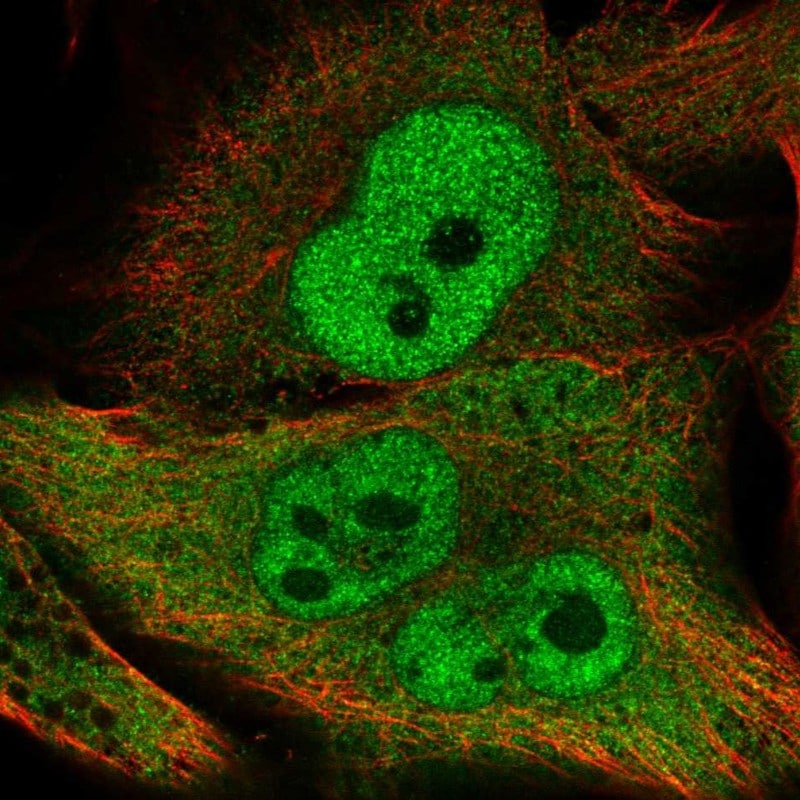Anti-APOLD1 antibody (ab272654)
Key features and details
- Rabbit polyclonal to APOLD1
- Suitable for: ICC/IF, WB, IHC-P
- Reacts with: Human
- Isotype: IgG
Overview
-
Product name
Anti-APOLD1 antibody -
Description
Rabbit polyclonal to APOLD1 -
Host species
Rabbit -
Tested applications
Suitable for: ICC/IF, WB, IHC-Pmore details -
Species reactivity
Reacts with: Human -
Immunogen
Recombinant fragment corresponding to Human APOLD1 aa 100-200.
Database link: Q96LR9 -
Positive control
- WB: RT4 and U-251 MG cells. IHC-P: Human placenta tissue. IF: SK-MEL-30 cells.
-
General notes
The Life Science industry has been in the grips of a reproducibility crisis for a number of years. Abcam is leading the way in addressing this with our range of recombinant monoclonal antibodies and knockout edited cell lines for gold-standard validation. Please check that this product meets your needs before purchasing.
If you have any questions, special requirements or concerns, please send us an inquiry and/or contact our Support team ahead of purchase. Recommended alternatives for this product can be found below, along with publications, customer reviews and Q&As
Properties
-
Form
Liquid -
Storage instructions
Shipped at 4°C. Store at +4°C short term (1-2 weeks). Upon delivery aliquot. Store at -20°C long term. Avoid freeze / thaw cycle. -
Storage buffer
pH: 7.20
Preservative: 0.02% Sodium azide
Constituents: 40% Glycerol (glycerin, glycerine), PBS -
 Concentration information loading...
Concentration information loading... -
Purity
Immunogen affinity purified -
Clonality
Polyclonal -
Isotype
IgG -
Research areas
Images
-
Lanes 2-3 : Anti-APOLD1 antibody (ab272654) at 0.4 µg/ml
Lane 1 : Molecular Weight ladder
Lane 2 : RT4 cells (Human urinary bladder cancer cell line)
Lane 3 : U-251 MG cells (Human brain glioma cell line)
-
 Immunohistochemistry (Formalin/PFA-fixed paraffin-embedded sections) - Anti-APOLD1 antibody (ab272654)
Immunohistochemistry (Formalin/PFA-fixed paraffin-embedded sections) - Anti-APOLD1 antibody (ab272654)Paraffin-embedded formalin-fixed human placenta tissue stained for APOLD1 using ab272654 at 1/50 dilution in immunohistochemical analysis.
-
PFA fixed, Triton X-100 permeablized SK-MEL-30 cells (human cutaneous melanoma cell line) labeling APOLD1 (green) using ab272654 at 2 ug/ml in ICC/IF analysis.






